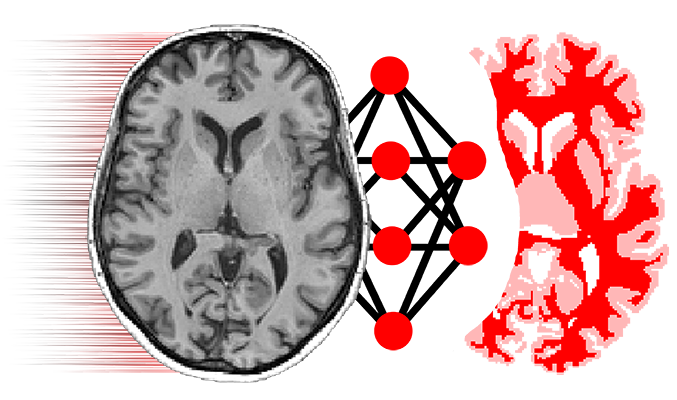Source code for niftynet.evaluation.evaluation_application_driver
# -*- coding: utf-8 -*-
"""
This module defines a general procedure for running evaluations
Example usage:
app_driver = EvaluationApplicationDriver()
app_driver.initialise_application(system_param, input_data_param)
app_driver.run_application()
system_param and input_data_param should be generated using:
niftynet.utilities.user_parameters_parser.run()
"""
from __future__ import absolute_import
from __future__ import division
from __future__ import print_function
import os
import time
import itertools
import pandas as pd
import tensorflow as tf
from niftynet.engine.application_factory import ApplicationFactory
from niftynet.io.misc_io import touch_folder
from niftynet.io.image_sets_partitioner import ImageSetsPartitioner
FILE_PREFIX = 'model.ckpt'
[docs]class EvaluationApplicationDriver(object):
"""
This class represents the application logic for evaluating a set of
results inferred within NiftyNet (or externally generated)
"""
def __init__(self):
self.app = None
self.model_dir = None
self.summary_dir = None
self.session_prefix = None
self.outputs_collector = None
self.gradients_collector = None
[docs] def initialise_application(self, workflow_param, data_param):
"""
This function receives all parameters from user config file,
create an instance of application.
:param workflow_param: a dictionary of user parameters,
keys correspond to sections in the config file
:param data_param: a dictionary of input image parameters,
keys correspond to data properties to be used by image_reader
:return:
"""
try:
system_param = workflow_param.get('SYSTEM', None)
net_param = workflow_param.get('NETWORK', None)
infer_param = workflow_param.get('INFERENCE', None)
eval_param = workflow_param.get('EVALUATION', None)
app_param = workflow_param.get('CUSTOM', None)
except AttributeError:
tf.logging.fatal('parameters should be dictionaries')
raise
self.num_threads = 1
# self.num_threads = max(system_param.num_threads, 1)
# self.num_gpus = system_param.num_gpus
# set_cuda_device(system_param.cuda_devices)
# set output TF model folders
self.model_dir = touch_folder(
os.path.join(system_param.model_dir, 'models'))
self.session_prefix = os.path.join(self.model_dir, FILE_PREFIX)
assert infer_param, 'inference parameters not specified'
# create an application instance
assert app_param, 'application specific param. not specified'
self.app_param = app_param
app_module = ApplicationFactory.create(app_param.name)
self.app = app_module(net_param, infer_param, system_param.action)
self.eval_param = eval_param
data_param, self.app_param = \
self.app.add_inferred_output(data_param, self.app_param)
# initialise data input
data_partitioner = ImageSetsPartitioner()
# clear the cached file lists
data_partitioner.reset()
if data_param:
data_partitioner.initialise(
data_param=data_param,
new_partition=False,
ratios=None,
data_split_file=system_param.dataset_split_file)
# initialise data input
self.app.initialise_dataset_loader(data_param, self.app_param,
data_partitioner)
self.app.initialise_evaluator(eval_param)
[docs] def run(self, application):
"""
This is the main application logic for evaluation.
Computation of all metrics for all subjects is delegated to an
Evaluator objects owned by the application object. The resulting
metrics are aggregated as defined by the evaluation classes and
output to one or more csv files (based on their 'group_by' headings).
For example, per-subject metrics will be in one file, per-label-class
metrics will be in another and per-subject-per-class will be in a
third.
:return:
"""
start_time = time.time()
try:
if not os.path.exists(self.eval_param.save_csv_dir):
os.makedirs(self.eval_param.save_csv_dir)
# iteratively run the graph
all_results = application.evaluator.evaluate()
for group_by, data_frame in all_results.items():
if group_by == (None,):
csv_id = ''
else:
csv_id = '_'.join(group_by)
with open(os.path.join(self.eval_param.save_csv_dir,
'eval_' + csv_id + '.csv'), 'w') as csv:
csv.write(data_frame.reset_index().to_csv(index=False))
except KeyboardInterrupt:
tf.logging.warning('User cancelled application')
except RuntimeError:
import sys
import traceback
exc_type, exc_value, exc_traceback = sys.exc_info()
traceback.print_exception(
exc_type, exc_value, exc_traceback, file=sys.stdout)
finally:
tf.logging.info('Cleaning up...')
tf.logging.info(
"%s stopped (time in second %.2f).",
type(application).__name__, (time.time() - start_time))
